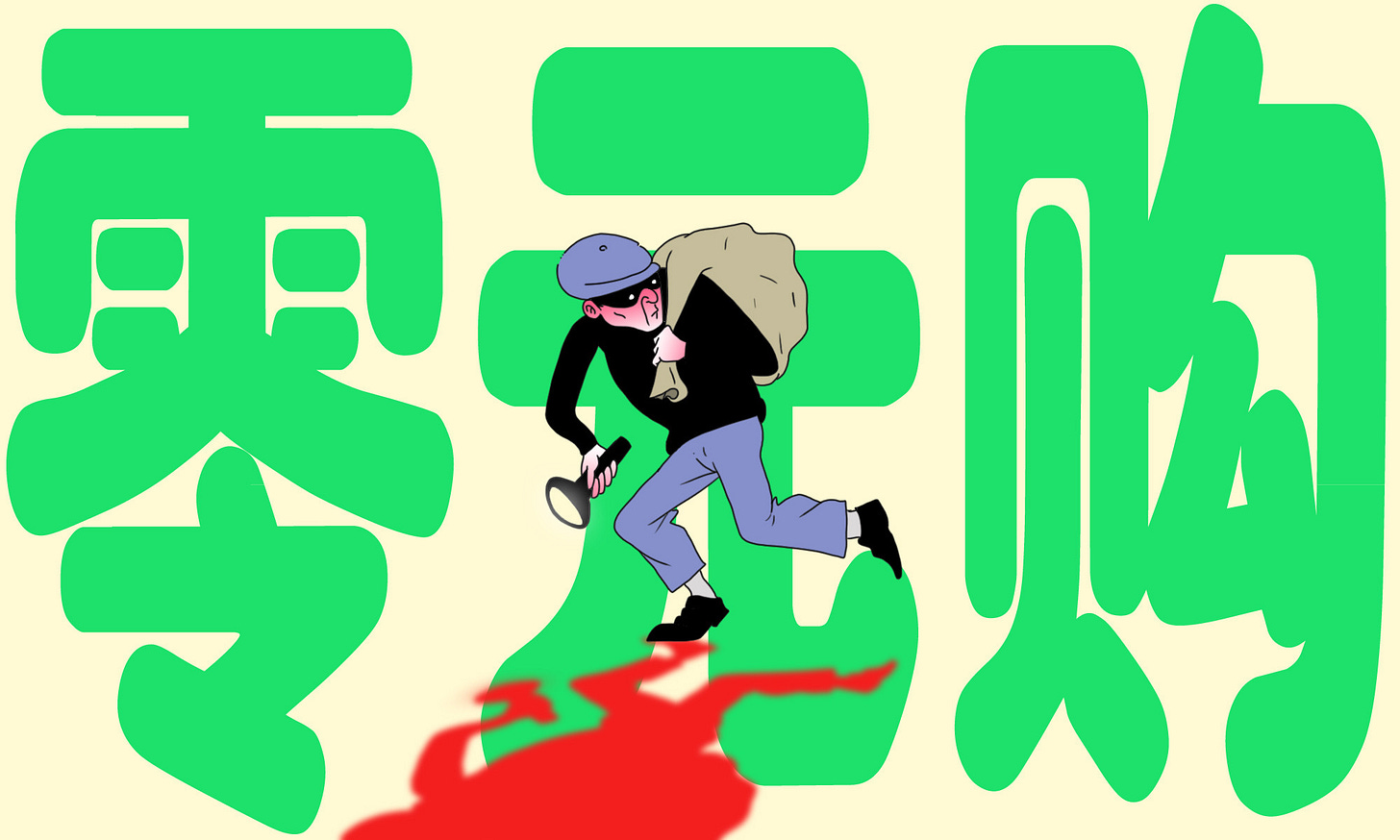Welcome to RealTime Mandarin—a multimedia resource to immerse you in the latest Chinese language trends, inspire you to practice and improve your Mandarin every week, and empower you to communicate with confidence.
Subscribe now to get the next issue straight to your inbox!
Hundreds of festival goers attending China’s largest music festival had their belongings stolen during the four-day gathering last week.
Held over the first weekend of China’s Golden Week holiday, the Midi Festival (迷笛音乐节 mídí yīnyuèjié) is now in its thirtieth year.
It was the first time Midi had come to Nanyang, a third tier city in Henan province.
So it’s a big opportunity to drive tourism there:
Judging from past experience, every time a music festival goes to a place, it can bring huge online attention and a large number of tourists to the local area. In the short-term, it can quickly promote local transportation, accommodation, catering and cultural tourism, and create income for the local people; in the longer-term, it can also help build a city brand. [2]
从以往的经验来看,音乐节每到一地,都能给当地带来极大的流量和客源,往近了说,能迅速带动当地的交通住宿、餐饮和文旅,给当地民众创造收入;往远了说,也有利于打造城市品牌 。[2]
Heavy rains on three of the four days meant that many punters stayed in hotels in Nanyang.
Except for the sunny weather on September 30, it rained for the other three days. After setting up their tents, many music fans only rested there during the day, and chose to stay in hotels in the city at night, where they could take a shower. For the sake of convenience, many people do not carry their luggage with them, leaving it in the tent.
除了9月30日天气还算晴朗之外,其它3天持续下雨。很多乐迷搭好帐篷之后,只是在白天休息时使用,晚上选择到市区的酒店住宿、洗澡。方便起见,很多人并没有随身携带行李,而是按照往常习惯,直接放在帐篷内。[1]
During the day there was plenty of fun to be had on the festival site:
The grass of the music festival had recently been planted, so after continuous rain the entire venue became muddy. It turned into a large-scale "mud war", which became a scene that went viral on major social platforms and short video platforms.
因为音乐节草坪刚刚铺设没多久,连续下雨之后,整个场地泥泞不堪,反倒演变成为大规模的“泥巴大战”,成为在各大社交平台、短视频平台疯传的画面。 [1]
With people away from their tents for much of the festival, they only realised their belongings had been stolen on the final day when they returned to pack. In some cases entire tents, as well as mobile phones, laptops, bank cards, cash, clothes, and shoes had all gone.
According to a statement released by the festival organizers on October 5, the local police had received a total of 73 reports of theft cases, while media interviews with people at the festival suggested there were hundreds of thefts:
In order to find the lost items, she joined three music fan support groups. Each group has 400 to 500 people, all of whom said they had lost their belongings.
为了找回丢失的物品,她加入3个乐迷互助群,每个群都有四五百人,均表示有丢失财物的情况。 [1]
The city police issued a statement, indicating they were proactively investigating. There were also suggestions by authorities that accounts of large-scale robbery were overblown.
That didn't go down well with disappointed music fans:
In this incident, rampant theft occurred, which can even be called Chinese-style looting.
这次偷盗事件中,盗贼的行为“十分猖獗”,甚至堪称中国式零元购事件。
So, that's what we explore this week!
Favourite Five
1. 盗窃 dào qiè
theft
没想到最后时刻猝不及防的盗窃事件,几乎毁掉了所有的“现世美好” - No one thought that theft would occur at the end of festival, which almost ruined the the whole thing. [1]
Related:
失窃 shī qiè - stolen
偷窃 tōu qiè - theft
偷盗 tōu dào - theft
2. 零元购 líng yuán gòu
zero-yuan shopping
这次偷盗事件中,盗贼的行为“十分猖獗”,甚至堪称中国式零元购事件 - In this incident, rampant theft occurred, which can even be called Chinese-style "zero-yuan shopping".
3. 明目张胆 míng mù zhāng dǎn
boldly and openly; blatantly
迷笛露营区发生大规模财物被盗事件,有乐迷提供的视频、图片显示,当地村民闯入迷笛营地明目张胆“洗劫”帐篷 - A large-scale theft occurred in the Midi camping area, and videos and pictures provided by fans showed that local villagers openly ransacked tents. [1]
Related:
明火执仗 míng huǒ zhí zhàng - openly display one's intentions
4. 毁于一旦 huǐ yú yí dàn
ruined in an instant
音乐节给她留下很美好的记忆,但是最后的遭遇让这些体验毁于一旦 - It left her with wonderful memories, but the final experience ruined it all in an instant. [1]
5. 烂泥扶不上墙 làn ní fú bú shàng qiáng
a hopeless mess that can't be fixed
一个原始社会的南阳,加上一个草台班子的迷笛,这烂泥组合永远都糊不上墙 - With a host city where rules of primitive society apply, combined with the disorganised Midi crew, this hopeless mess really can't be fixed. [4]
Note: A colloquial phrase, and also a play on words with the word "mud".
Consuming the Conversation
Useful words
6. 拾捡 shí jiǎn
pick up
音乐节第二、三天,便发现有人“拾捡”防潮垫的问题 - On the second and third days of the music festival, it was discovered that some people were taking moisture-proof mats. [1]
Related:
翻捡 fān jiǎn - rummaging
7. 下手 xià shǒu
to make a move
因网民陈某违规发布“活动已结束要清理现场”的不实信息,引发附近村民趁乱下手,出现多起露营区财物被盗的案件 - Due to the false information spread online by a netizen surnamed Chen, claiming that "the event has ended and the site needs cleaning”, nearby villagers took advantage of the chaos and made a move, resulting in multiple cases of theft in the camping area. [1]
8. 泡汤 pào tāng
to be ruined; to fall through
因为连续下雨,一些乐迷在户外露营的计划泡汤 - The continuous rain ruined the plans of some music fans for outdoor camping. [1]
9. 洗劫 xǐ jié
plunder
最后愈演愈烈,演变成明火执仗的“洗劫” - In the end, it escalated further and turned into a blatant plunder. [1]
Related:
搜刮 sōu guā - to loot; to pillage
10. 抓包 zhuā bāo
to catch someone in the act; to catch red-handed
一些村民或是开着三轮车装运营地物品,或是偷拿帐篷里的物品,被乐迷当场抓包 - Some villagers were caught red-handed by the music fans either transporting campsite items on tricycles or stealing things from tents. [2]
Note: The direct translation is “grab the packet” which is an internet slang word, which originates from sending and receiving "red packets" (红包) on WeChat.
11. 苦水 kǔ shuǐ
bitter water; frustration
被偷东西的苦主,往往对这种行为无可奈何,只能自咽苦水 - The victims of theft often feel helpless in the face of such actions and can only swallow their frustration. [2]
12. 恶习 è xí
bad habit
别人的偷窃恶习,短期内难以扭转 - It is difficult to correct other people's bad habit of theft in the short term. [2]
13. 猖獗 chāng jué
rampant; unbridled
这次偷盗事件中,盗贼的行为“十分猖獗” - In this incident, rampant theft occurred. [3]
Three-character phrases
14. 捡便宜 jiǎn pián yi
to seek bargains; to look for cheap deals















